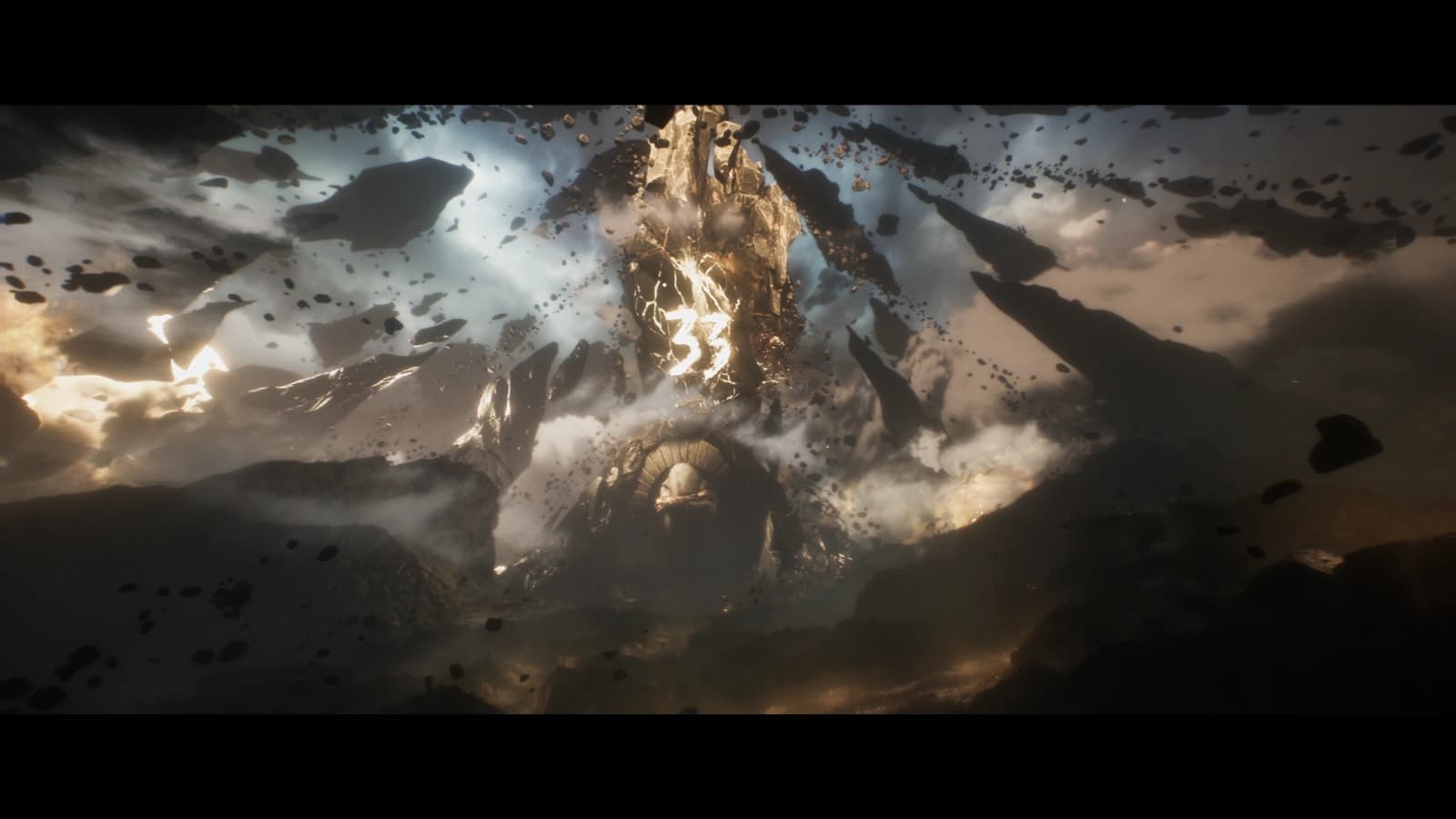
I’ll say this up front: I’m tired of “melancholy” being used as a marketing bullet point in fantasy RPGs, and even more tired of turn-based combat systems where every boss is just an HP sponge waiting on your next Ultima cast. When I first saw Clair Obscur: Expedition 33’s painterly announcement trailer, I was fully prepared to be burned again-style over substance, sorrowful piano keys, a world “lost to decay.” Yeah, I’ve played that game before. Or at least, I thought I had. And then I got my hands on it, and not only did Expedition 33 blindside me emotionally, it actually made me sit up and think every single turn-and that’s not something I say lightly after 20 years of JRPG grinding. This game has teeth, and its combat is fighting back against the genre’s stagnation in ways most studios are scared to attempt.
Expedition 33’s combat is the boldest fusion of turn-based and real-time systems I’ve played since Grandia II or Paper Mario, and it puts most modern RPGs on notice. The game’s melancholy is more than a vibe—it shapes mechanics, choices, and the player’s psychological state. The sheer tactical depth makes every victory earned, not handed out for mashing A. This isn’t comfort food JRPG “sadness.” It’s an invitation to fight against futility—gameplay and story alike.
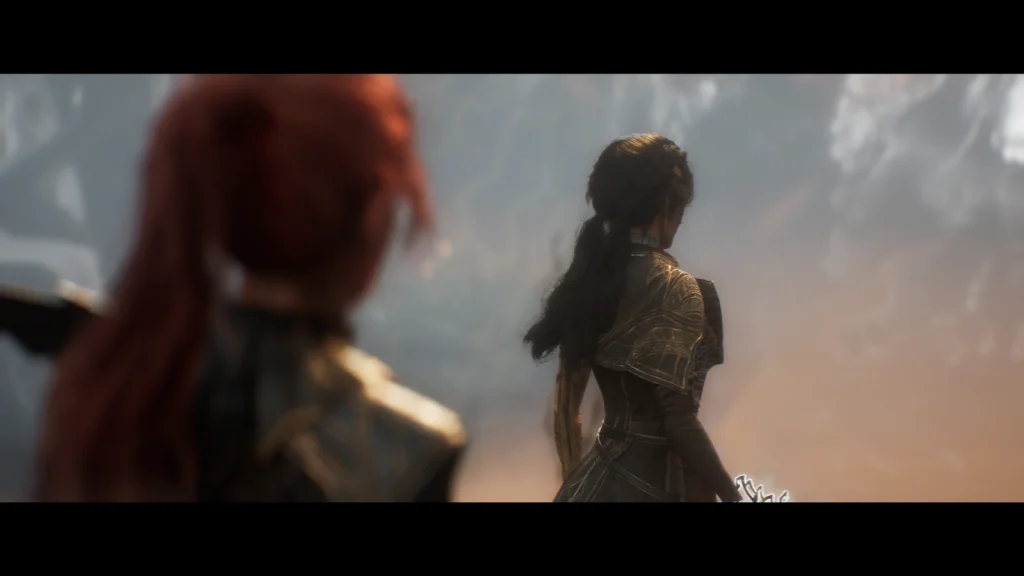
I’m writing this as someone who’s poured an embarrassing number of hours into turn-based RPGs since the glory days of PS1 and Dreamcast—Phantasy Star IV, Chrono Cross, that entire golden era. Later, I got serious about fighting games, where mind-games and execution matter every round. So when I hear about a new RPG “innovating” with some minor positional tweaks or an ATB gauge, I roll my eyes. But Expedition 33? It earned my goddamn respect. Not just because it made real-time reflexes feel crucial, but because it punctured my comfort zone as a veteran RPG perfectionist. My pride took a hit, and honestly, I needed it.
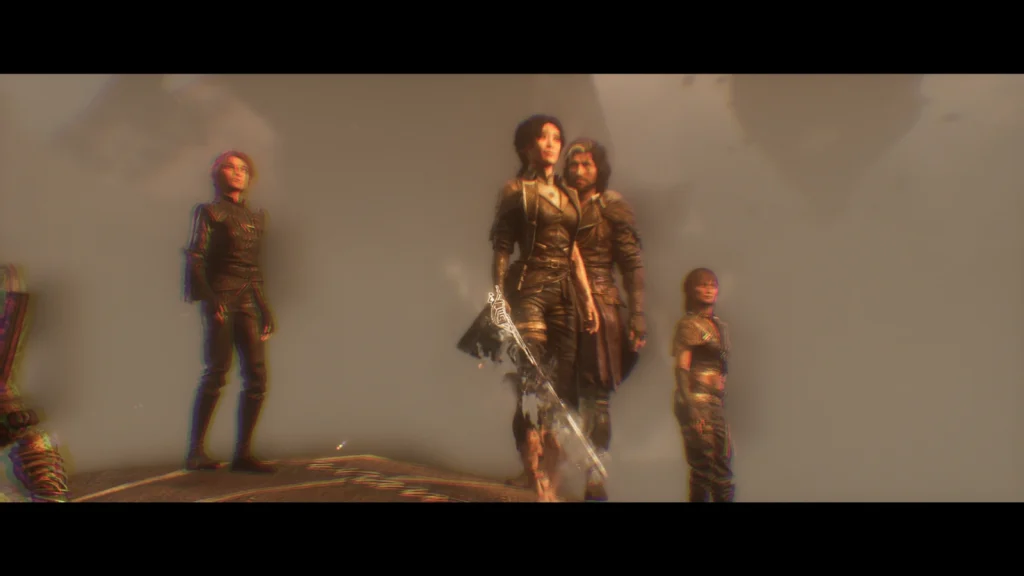
Here’s where I call some bullshit on the genre: too many RPGs these days throw in tragedy like seasoning, hoping you’ll ignore bland mechanics if the world is bleak enough. You know what actually hurts? Watching the survivors in Expedition 33 trek through the Red Forest for the twentieth time—not because the game is padding your playtime, but because that hopeless repetition is baked into the narrative. Every year the Expedition sets out, every year it’s doomed, and you—the player—have to confront that cyclical loss mechanically. If you don’t learn the ability point (AP) economy or master the art of flawless dodging, you fall behind. The game isn’t content just telling you the world is decaying, it demands that you feel it in your hands.
As a French player, seeing Paris destroyed yet somehow still faithful to its essence hit different. The developers at Sandfall Interactive didn’t just paint over familiar landmarks with apocalyptic grime—they understood what makes a place feel like home even when it’s been gutted. That kind of cultural authenticity seeps into every design choice, from character mannerisms to the way hope flickers in dialogue.
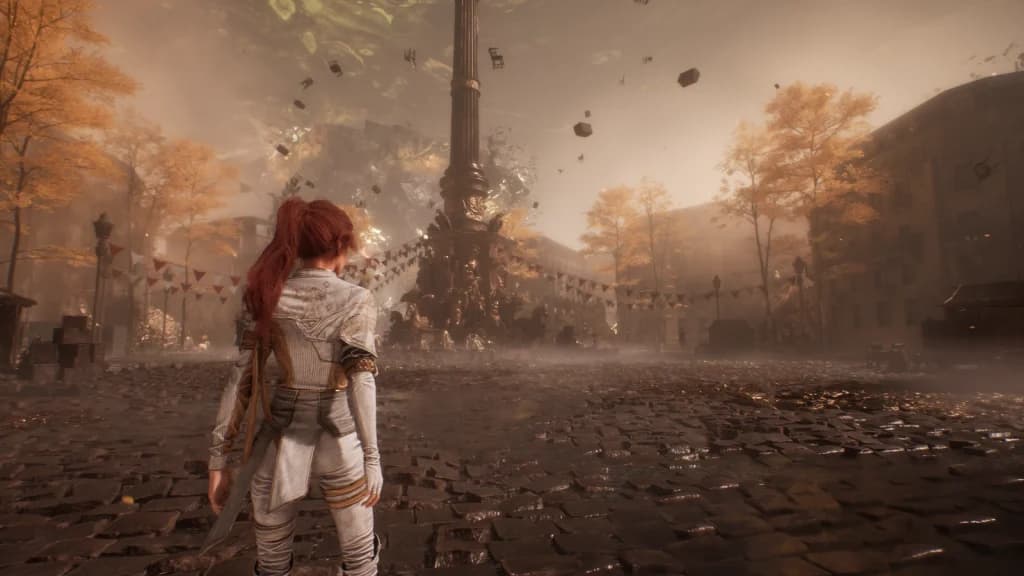
It reminds me of the first time I realized Shenmue’s world wasn’t built for my convenience, with its daily routines and bitter deadlines. But where Shenmue bottled the ache of banality, Expedition 33 injects it straight into the marrow of your fights. Your failures have narrative weight—parties wear emotional scars, and even one botched parry can set off a chain of misery that the script isn’t going to wave away with a stock healing spell. Melancholy, in this game, is risk and uncertainty, not just “sad violin” soundtrack.
Take Dualliste—a boss that threw me against the wall until I learned to read his insane combo strings like sheet music. Those aren’t just flashy animations; they’re tactical puzzles that demand frame-perfect timing and stamina management. When you finally nail the rhythm, dodging through his assault while building your Gradient meter, it feels like conducting a violent symphony. This isn’t some Persona-lite system where every turn is just setup for an All-Out Attack; this is a knife’s-edge economy where your build and Pictos can completely transform how a character functions in battle.
I went in thinking the Gradient Attack gimmick would be a half-baked ultimate meter, but damn was I wrong. Building that shared party gauge isn’t just about dealing damage; it’s about pushing your AP economy to the brink. Melee attacks refill your action opportunities, but if you overcommit for a flashy ranged Skill, you might be left with no defense when the boss lets loose. When I pulled off a perfectly timed gradient finisher after a brutal boss phase, it felt earned—the kind of high I usually only get from landing a Hail Mary in a competitive fighter.
Here’s the honest truth though: this system leans heavily on perfect parrying and dodging. You will die before you survive. Recent patches have balanced this somewhat, but fights still demand execution that might frustrate players expecting traditional turn-based comfort. That said, when you master those timing windows, when muscle memory kicks in and you’re dancing through enemy patterns, no JRPG combat has ever felt this exhilarating.
Look, I get the arguments from the “RPGs as comfort food” camp. Sometimes you want a game to let you relax, zone out, and grind your way through a story. But let’s not pretend that’s the only—or even the best—way this genre can make you feel. Expedition 33’s difficulty isn’t just about difficulty for its own sake; it’s about making you care about every move and every mistake. For once, your losses are a part of the story’s anguish, mechanically and emotionally. That’s what sets it apart from its mopey, passive peers.
The narrative deliberately withholds information in ways that initially annoyed me—here I am, curious as hell, getting breadcrumbs when I want the whole loaf. But that frustration mirrors the characters’ own confusion, their desperate search for answers in a world that’s stopped making sense. Everything falls into place eventually, keeping you awake wondering what puzzle piece comes next.
I remember hitting a wall against one boss, fumbling my AP like a chump and watching my party fall apart. Sure, I raged, but I also learned. I stopped blaming the game and started studying patterns, rationing stamina, rotating reserves like I was prepping for a tournament final. When I finally won, the release was real. That’s the kind of satisfaction I haven’t felt since mastering a punishing Souls boss, except this time, strategy was as important as reflex. Expeditions in this game are doomed by design, but survival is measured by how much you grow—not just in stats, but in skill.
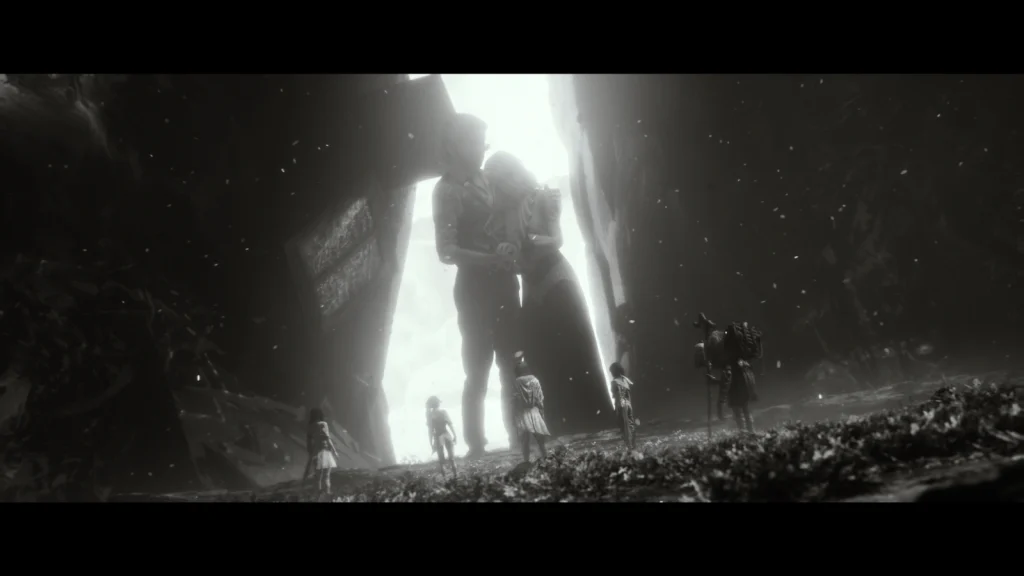
I’m not oblivious to the criticism floating around—yes, there’s a learning curve steeper than most, and yes, the game expects you to fail (often, spectacularly). Some might call this elitist, or say it shuts out casual fans. I get it. But honestly? After slogging through too many RPGs that treat the player like a toddler, holding your hand until the final hours, I find Expedition 33’s demands refreshing. It might be challenging if this is your first RPG, but the game is crafted with such obvious love that it deserves your patience. It respects your intelligence, and it’s not afraid to let you suffer a little so that the victories actually mean something.
The technical polish helps tremendously—no bugs, no frame drops, just smooth performance that never gets in the way of the experience. Though I’ll admit the menu UI could be clearer, and the ability to save build presets would’ve been welcome.
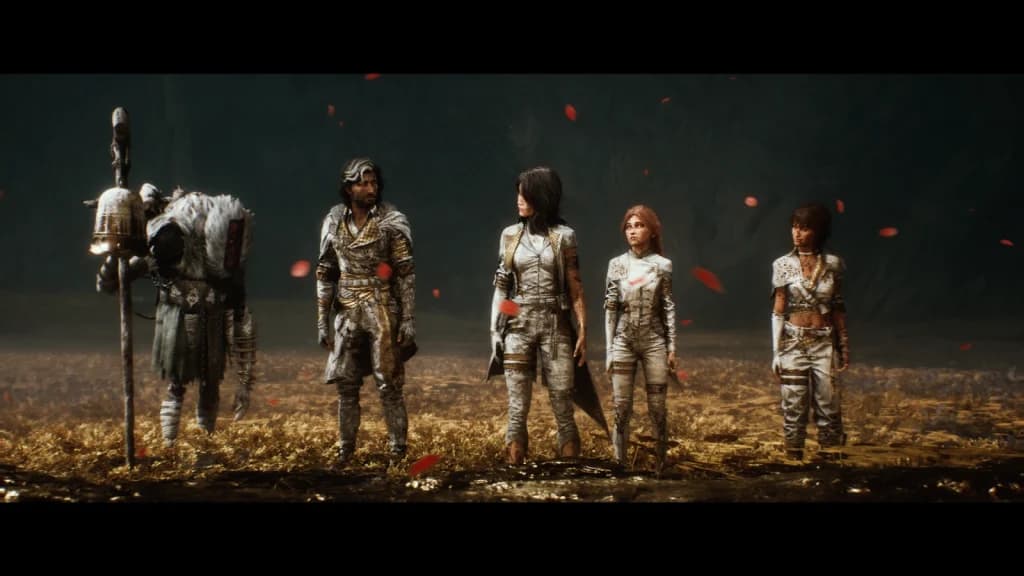
Every year, I hear about the “renaissance of turn-based combat”—only to see the same old formulas shuffled and reskinned. Expedition 33 brings that conversation to a screeching halt. If more studios had the guts to make you feel their themes—putting melancholy into gameplay, not just writing—we’d finally escape this nostalgia trap the genre’s been stuck in since the PS2 era. Other JRPGs should steal this QTE-integrated combat system wholesale. And if you’re a fan of deep, punishing, meaningful mechanics like me, you deserve to reward devs who respect your time and your skills.
The soundtrack deserves special mention—I find myself listening to these tracks outside the game, something I haven’t done since Final Fantasy VII. When music can stand alone while perfectly complementing every emotional beat in context, you know the composers understood the assignment.
I’m brutally honest with my gaming time these days—if a game doesn’t challenge me or move me, I’ll shelve it fast. Expedition 33 didn’t just keep me locked in, it forced me to rethink what “melancholy” and “innovation” really look like in RPGs. Its relentless combat, risk/reward economy, and narrative integration are a slap in the face for anyone coasting on genre conventions.
This is my game of the year, hands down. Clair Obscur: Expedition 33 represents everything the JRPG genre desperately needed: proof that turn-based combat can evolve without abandoning its tactical soul. Sandfall Interactive crafted something that honors both the JRPG tradition and the potential for what comes next.
The game won’t coddle you, but if you’ve got even a shred of patience and pride, it’s the boldest statement the RPG scene has made in years. For once, bring on the bleakness—if it makes every fight, and every fleeting win, actually matter.